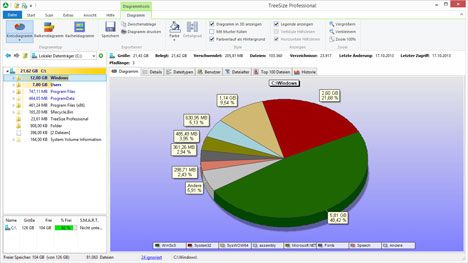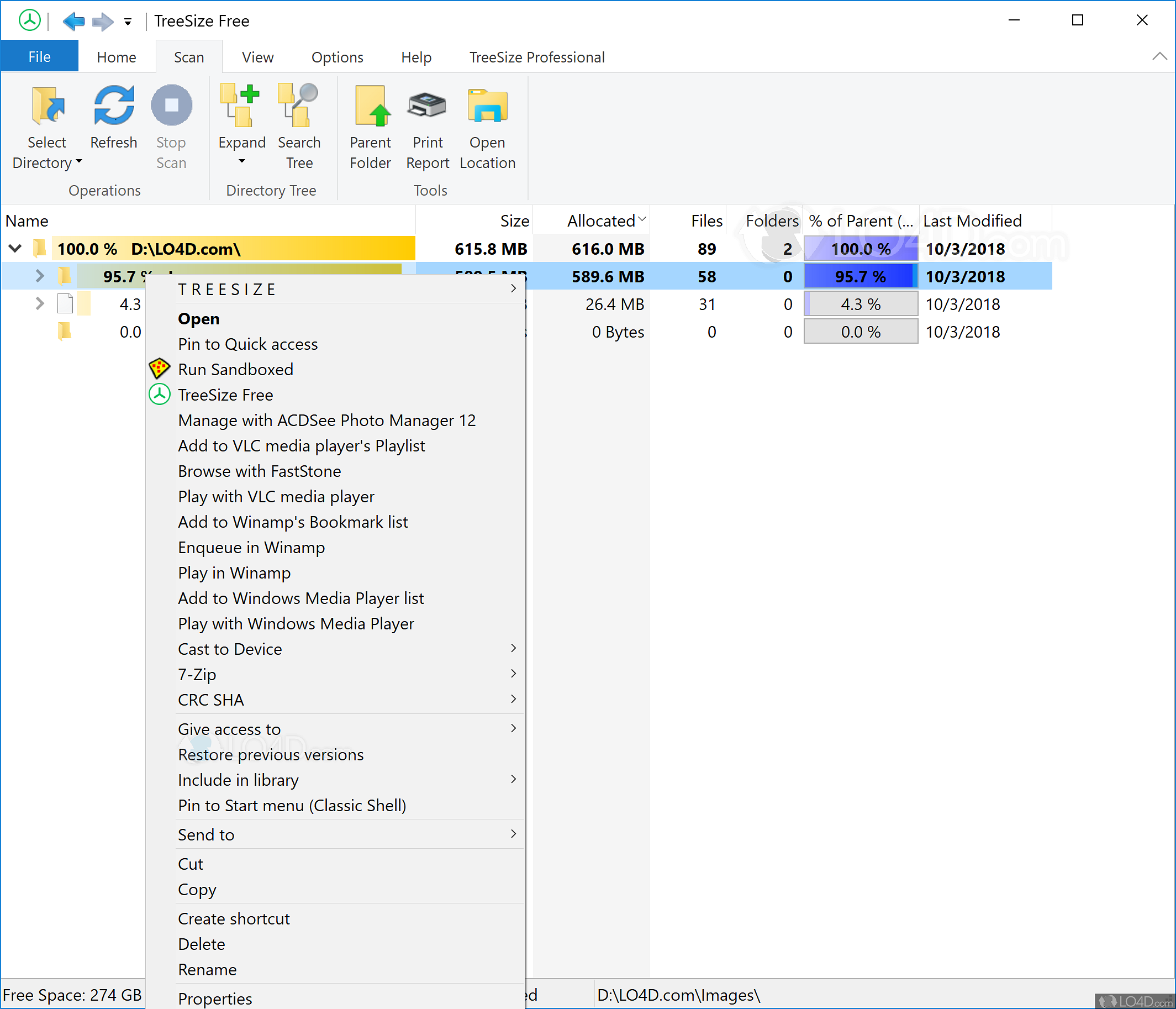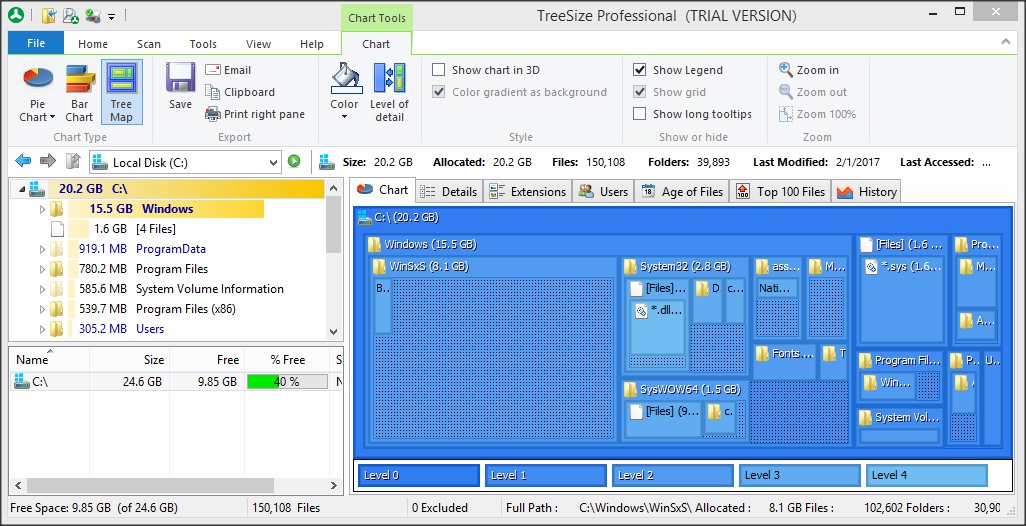

- #Linux utility like treesize install#
- #Linux utility like treesize full#
- #Linux utility like treesize portable#
- #Linux utility like treesize tv#
Package managersĪt the moment, checkra1n only supports installing Cydia. Work is ongoing to support Windows, which will be added in a later release. This beta is only available for macOS and Linux. It is unknown whether any other language is affected.
#Linux utility like treesize tv#
#Linux utility like treesize full#
If you like these kinds of posts, feel free to check out our gallery full of useful real-world scripts. It’s not that much effort to run and it provides a ton of useful information so it’s pretty much a no brainer.Īll in all I wanted to say thanks a lot for taking the time to visit and hopefully you can make use of the Powershell script in your environment. I’m pretty stoked how quickly it was able to process remote servers and I’m sure I’ll be adding this to my list of audit tasks.

So hopefully you were able to make use of the Powershell script to get directory tree size including all subfolders. For this I replaced the original $Path location with “.\” so it’s relative to $Path. You can also sort by FolderSizeInMB and see which folder has the most space.Īnother thing to note is that I wanted to shorten the display of the subfolders so it doesn’t push the file, directory and size counts off the screen. The Recurse parameter allows you to drill down all folders and view stats. When you call the function and only specify the path parameter, here is what it looks like.

If (-not $PSBoundParameters.ContainsKey("AllItemsAndAllFolders") -and -not $PSBoundParameters.ContainsKey("Recurse")) " -f ($FileStats.Sum / 1MB) -as = $Folder.Replace($Path,".\") #Adding a trailing slash at the end of $path to make it consistent. ParameterSetName = "ShowTopFolderAllItemsAndAllFolders" If you have any questions feel free to drop me a comment and I’ll do my best to get back to you.
#Linux utility like treesize portable#
As mentioned above I also wanted it to be portable so I wanted to make sure it was able get folder sizes for remote computers.

The goal of the script was to have Powershell get all files in a directory and subdirectories with size. I wanted something a bit more portable and most of all, I wanted something clean! I decided I was going to write a Powershell script to get folder sizes on remote computers and ultimately came up with Get Directory Tree Size Using Powershell.
#Linux utility like treesize install#
I know there are programs such as windirstat and treesize but I didn’t necessarily want to install anything on my server, much less worry about patching it or removing it later. I thought it to be highly unusual that it could be filled up so fast so I wanted to see what folders were taking the most space remotely. The problem was that this was a relatively new server with several terabytes of disk space. Typically, I would just go into VMware vCenter, expand the disk and call it a day. The other day I got some alerts saying that one of our file servers was running out of space.


 0 kommentar(er)
0 kommentar(er)
